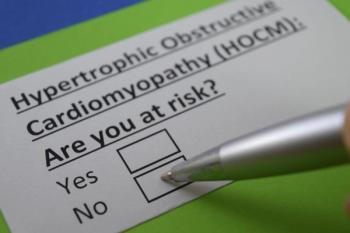
Study Evaluates Pharmacogenetic Testing for Statin Myopathy Risk
Investigators evaluated pharmacogenetic results for statin myopathy risk to determine the clinical benefit of these testing programs.
A recent study evaluated whether pharmacogenetic testing for statin myopathy risk could be used in a clinical setting to improve patient outcomes.
Although statins are widely used to lower cholesterol and prevent atherosclerotic cardiovascular disease (ASCVD), adverse effects associated with statins can affect patient adherence.
Nearly all patients carry 1 or more genetic variants that can be associated with hindering either the safety or efficacy of at least 1 medication, according to the study authors. However, some stakeholders remain wary of pharmacogenetic results and their unintended harms in the clinical setting. The FDA has also expressed concerns about the validity of pharmacogenetic testing despite disagreement from clinical laboratory, molecular pathology, and pharmacogenetics professional societies.
As such, clinical outcomes data is needed to demonstrate whether clinical use of pharmacogenetic results is associated with improved patient outcomes. “The absence of such outcomes data remains a barrier to the adoption of pharmacogenetic testing by health care practitioners, health systems, and payers,” study authors explained.
The study focused on the association between the solute carrier organic anion transporter family member 1B1 (SLCO1B1) genotype and statin-associated muscle symptoms (SAMS). Study authors asserted that that previous studies have identified the association between a genetic variant in SLCO1B1 and severe simvastatin-related myopathy, as well as an association with milder phenotypes of statin intolerance.
The study took place at 8 primary locations in the Veterans Affairs Boston Healthcare system and included 408 patients cared for by 47 physicians. Patients were randomized to be placed in either the intervention group (193) or the control group (215). The mean (SD) age of patients was 64.1 years; 25 (6.1%) were female, 56 (13.7%) were non-white, and 98 patients (24.0%) had diabetes and 98 (24.0%) had prior ASCVD. A total of 120 patients (29%) showed a SLCO1B1 genotype indicative of increased simvastatin myopathy risk.
Between December 2015 and July 2019, investigators analyzed the 1-year changes in low-density lipoprotein cholesterol (LDL-C) levels in participants to determine the effectiveness of pharmacogenetic testing results on ASCVD prevention. Compared with statin-naïve patients whose physicians did not know their SLCO1B1 results at baseline, participants with physicians aware of their results had noninferior reductions in LDL-C at 12 months.
Researchers are hopeful that the study results will break the barriers impeding more widespread pharmacogenetic uptake in the clinical setting. “Although these results do not support a patient benefit from stand-alone preemptive SLCO1B1 genotyping, they help allay concerns about the potential unintended harms of using such pharmacogenetic results in medical practice if they are available,” the authors concluded.
Reference:
- Vassy JL. Gaziano M, Green RC, et al. Effect of pharmacogenetic testing for statin myopathy risk vs usual care on blood cholesterol. JAMA; December 3, 2020. Accessed January 5, 2020. doi: 10.1001/jamanetworkopen.2020.27092.
Newsletter
Pharmacy practice is always changing. Stay ahead of the curve with the Drug Topics newsletter and get the latest drug information, industry trends, and patient care tips.























